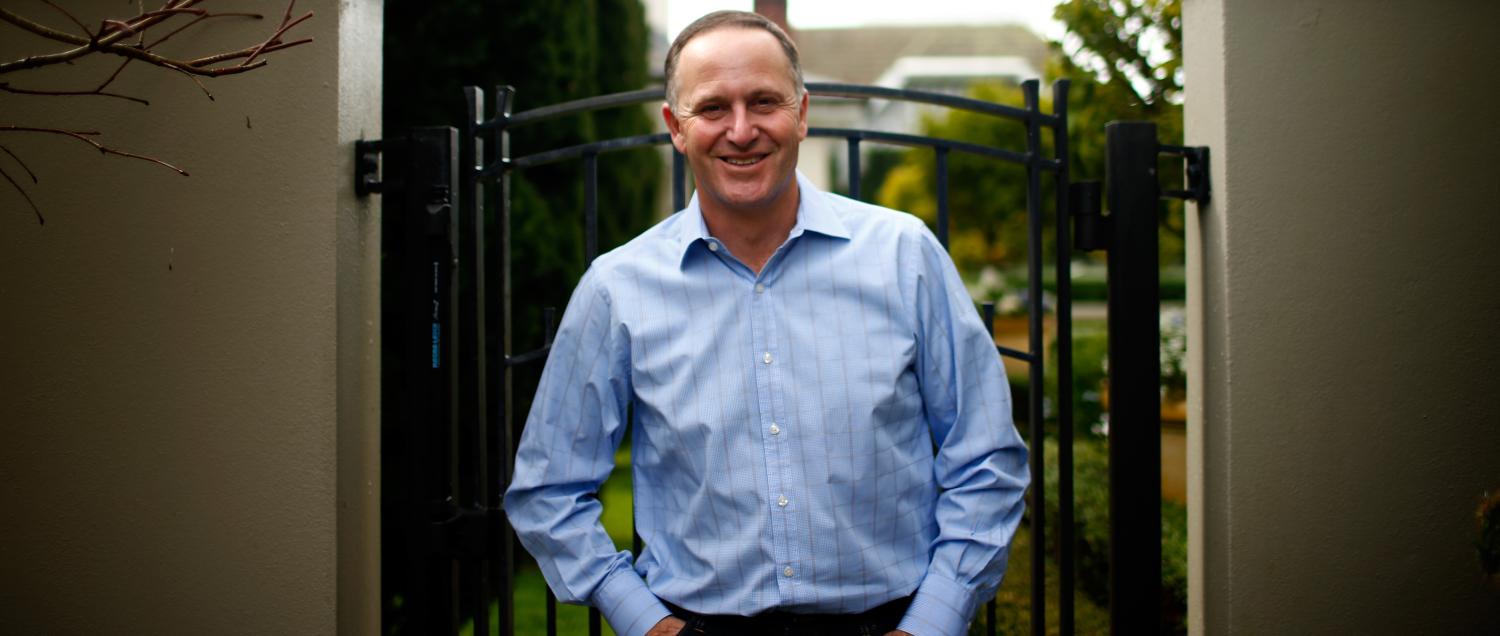New Zealand Prime Minister John Key’s surprise resignation announcement has brought the curtain down on a political career that can only described as astonishingly successful. Still hugely popular in the second half of his third term, Key has displayed a remarkable ability to calm incipient political storms and maintain the impression that he still connects with ordinary voters. He has been helped by a disarmingly self-deprecating sense of humour and admired from abroad for his calm and moderate brand of politics.
Key has done this while neighbouring Australia has experienced five changes of prime minister and while immoderate populism has grown in too many western democracies (think Trump, Brexit and whatever next may befall Europe). That resilience is even more remarkable given the economic morass that Key encountered in his first term of office. There were two main causes, both beyond Wellington’s immediate control. One was the global financial crisis, whose effects, as Hillary Clinton found to her cost, are still percolating in America’s rustbelt. The other was the devastating 2011 Christchurch earthquake. Quite possibly Key’s most impressive achievement came in that first term, step-changing government accounts after a huge hole appeared in the budget, and helping the economy move first to a slow recovery and then to more significant levels of growth.
That ongoing expansion has been a central reason for Key’s continuing success at the ballot box. But the Prime Minister’s resiliently optimistic view of New Zealand’s prospects has also been a feel-good factor at a time when there has not been a lot in the wider world to feel that good about. The Key team has never acted as if foreign affairs or defence policy were proven vote winners. But they appear to have had one eye on what domestic political sentiment will put up with in making external policy decisions. For example, while the improvement in US defence relations has accelerated in the Key era, talk of ANZUS and alliance has remained off the menu. While New Zealand has sent forces to join their Australian colleagues at Taji Base in Iraq, Key led the argument that ruled out a combat role and explained the mission in training terms. And in this year’s Defence White Paper, the emphasis on missions in the southern oceans and Antarctica seems designed partly to encourage cross-partisan support for a major program of capital investment.
Less dexterous prime ministers might have found themselves caught up in one international conundrum or another. Not so it would seem for John Key. A commercially orientated foreign policy allowed the better parts of the relationship between the US and China to be emphasised. Huge New Zealand effort was put into the TPP, but Key will miss the formal death of that sought-after agreement at the hands of President Trump. New Zealand’s appointment to the Security Council (the career highlight for Key’s Foreign Minister Murray McCully) will have come and gone without Wellington taking on significant additional burdens, including in peacekeeping. While New Zealand’s language on the South China Sea has firmed up, it is still less colourful (and objectionable to China) than Australia’s. And with Canberra, Wellington has signalled the return of Fiji to the fold of better relations without being pushed too hard on how much democratic change there has really been.
Another factor in Key’s success has been his political management of coalitions and cabinet. In terms of the former, Key has excelled in stitching together a series of governing coalitions (without which parliamentary majorities are impossible, thanks to New Zealand’s proportional electoral system). This includes the indigenous rights Maori Party, whose participation has broadened the government’s overall mandate. In terms of cabinet management, Key has been the smiling face of a core group of able ministers who have done much of the heavy lifting and number-crunching behind the scene. One of those ministers, Deputy Prime Minister Bill English, is Key’s obvious choice to replace him. Another vital part of the effort has come from the apparently tireless Economic Development Minister Steven Joyce. National will be hoping that as much of the Key cabinet remains intact as possible, but political lessons are seldom learnt for long, and ambitious aspirants are bound now to come to the fore.
Even if Key’s is the only major departure and the initial transition to the less charismatic English goes like clockwork, it is not clear that National knows how to govern without the most impressive leader New Zealand has had in more than a generation. And with the main obstacle to Labour’s election chances departing, New Zealand’s main opposition party may now find itself believing it has a real chance to win the Treasury benches. That may seem unlikely on the surface: the polls have been abysmal, including under Andrew Little’s leadership. But without Key on the scene, the main reason for the electorate to support National has disappeared, and leading Labour becomes a more attractive job. Labour and the Greens will know that the problems that attach themselves to most third term governments (and which Key has managed to brush off) will probably start to stick once he has gone.
In short, a period of uncertainty and renewed contest in New Zealand politics is more than likely ahead of next year’s election. The external timing probably could not be much worse. Many of the world’s liberal democracies are staring down deep divisions over the future of their open societies. That is not the case for New Zealand, and Key’s leadership and his enduring popularity has at least something to do with that. This means that his departure from political life can probably be counted as a blow for the wider Asia-Pacific region. But perhaps Key simply wanted to disprove the old saying that all political careers end in failure.
Photo by Phil Walter/Getty Images

